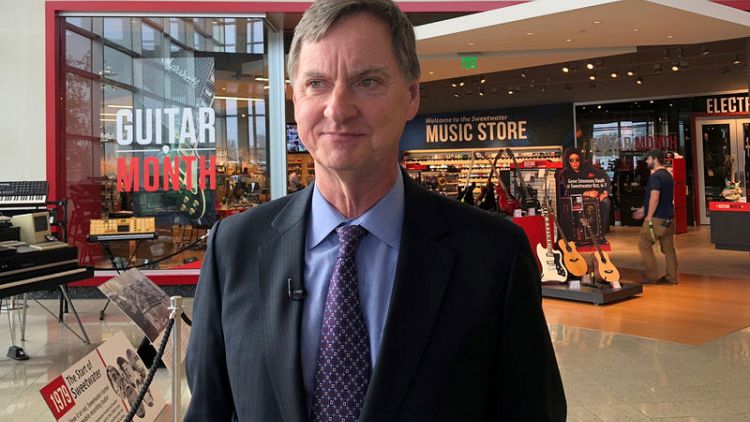DETROIT (Reuters) - Chicago Federal Reserve Bank President Charles Evans on Wednesday said that not only is trade policy uncertainty slowing U.S. business investment decisions, limits on trade and immigration could mean slower potential economic growth overall.
Evans, who supported the Fed's July rate cut and has signalled he would support more easing to boost excessively low inflation, did not talk directly about interest-rate policy in his remarks, prepared for delivery to a conference on North American trade and the auto industry.
But his remarks suggest that trade policy uncertainty, as U.S. President Donald Trump uses tariffs to try to squeeze a better trade deal from China and other trading partners, could provide an additional rationale for a further interest rate cut. Fed policymakers next meet in Washington in two weeks.
"When businesses are weighing whether or not to make substantial investments, uncertainty tends to slow down such decisions," Evans said. "The auto industry has been especially challenged by the uncertainty posed by actual and proposed changes in trade policy, as its production operations in the United States, Canada, and Mexico are closely linked across the three countries."
Evans' comments also linked two policies central to the Trump administration -- reducing trade and immigration -- to a lower long-term growth path for the United States.
Trump has said his policies will deliver 3% growth. In contrast, Evans on Wednesday suggested that limiting trade, which reduces competition and productivity, and restricting immigration, which limits workforce growth, could slow potential growth to just 1.5%.
(Writing by Ann Saphir in San Francisco, reporting by Joe White in Detroit; Editing by Chizu Nomiyama)



